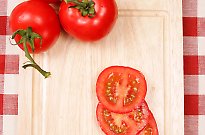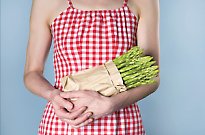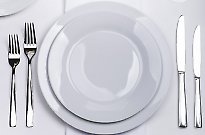
Tao of eating

Improve your health with Lao Tzu’s Tao Te Ching
Brannon Gerling espouses classic guidance for lasting dietary wellness.
Lao Tzu’s Tao Te Ching is one of the most ancient and perhaps the most confident sources of literature available to us.
At first strange to Western understanding, the Tao often works mysteriously with the unbothered truth that lies between contradictions.
Chinese philosopher, Tzu, was born around 400 BC and was the founder of the religious philosophy of Taosim. He was known to say things like: “Difficult and easy complement each other,” and Johnny Cash doubtless thought of the Tao when he wrote: “Where the rain never falls, the sun never shines.”
We can use Tzu’s mode of contradictory training to gain deeper realisations of our world and ourselves with and in it. Tzu has said: “Big things can only be achieved by attending to their small beginnings,” we can apply the wisdom in a double way. We can see it on a linear platform and propose that in order to achieve goals B and C we must first achieve goal A. Secondly, we can also relate the maxim (a saying) to our present situation and surroundings and put our focus right there, which will fully render us the authoritative skill to command our own creative actions.
Applying this knowledge to diet and exercise can provide us with lifelong considerations that can eventually be forged into permanent abilities. Our present and future health depends on these abilities; and incessant reliance on external sources for dietetic and fitness knowledge and services will only delay that knowledge from becoming your own. With Taoist training, we will learn to effectively select healthy food, maximise our workouts, and appreciate our uniqueness without external diagnoses and prescriptions.
Listen to your body, before and after you eat
You are sitting in front of your plate, nothing can separate you from it, your thoughts are correspondingly affected, and once you ingest your meal, it becomes mutually organised and fused with the workings of your organs. Simply become conscious of this intimacy.
Physiologically, the food that you take in immediately begins the process of cell reparation. Psychologically and spiritually, knowing what ingredients compose your food, how your moods and range of activities are affected, and how much you genuinely appreciate what you are eating will develop a closer understanding of yourself within your world of consumption.
The ability to listen to your body’s nutritional needs before and after eating will critically enhance your knowledge and power of self-possessing your eating choices. Ask yourself how you physically and mentally feel before consumption, and how you want to feel following your meal, taking into consideration what your daily routine entails and any additional activities you plan on pursuing in the day and the ones that follow.
Minimise packaged food
Foods that are synthetically produced take longer for your body to process. The further your food is away from its natural state, its ingredients being adulterated in labs by preservatives and ‘enhancers,’ the further it is from the circle of life’s continuous recurrence.
Since the slow yet sure diminishing of traditional farmers’ markets, wherein one can find local food brimming from various farms and sold to slow and steady chefs and foodies, the supermarket has risen on weedy and expansive roots. Since management and product sources are highly centralised at these megastores, the product diversity is reduced compared to that of the traditional food market. This reduction of sustainable food diversity draws crops from increasingly larger farms often substitute the profound nurturing that human labour provided the land, for nitrogen fertilisers, herbicides, pesticides, and genetically modified seeds (GMOs). Sources of health epidemics around the globe, these chemical practices contribute to job reduction and compromise the ecosystems in and out of our bodies. Michael Pollan, author of In Defense of Food: An Eater’s Manifesto, tells us that, “farming has changed more in the last 50 years than it has in the last 10,000.” Comparatively, food that has been chemically adulterated lacks 40 per cent of the nutritive value than food produced over that 50-year span.
To lessen your reliance and enhance your understanding of processed foods, be wary of the things you eat that generally sit in the centres of the supermarket, where most processed foods linger and are preserved, unlike perishable goods that some claim to be.
Endeavor to understand the ingredients that compose your food
If you will be eating packaged food, the simplest yet most surefire way of knowing whether it is truly natural or not is if you can pronounce the ingredient. Anything lab-made will leave residues within your body, especially if it is a preservative. Preservatives, by definition, overstay organic welcome. In warmer climates, where the body need not store as much energy as in colder regions, the flushing of the body with food, sweat and water should be actively facilitated for optimum energetic fluidity and purging of foreign agents.
The salt, fat and sweet tastes most uncommonly found in nature are the three tastes most commonly manufactured for fast-food consumerism.
The synthetic flavour enhancers provide an addictive attraction but damage brain cells and shut off the mind’s satiety centre (a group of cells in the ventromedial hypothalamus that when stimulated suppress a desire for food), which is alerted by the stomach when the body is full and satisfied. Thus, in a way, consumers act like ducks grown for foie gras, like unwitting insatiable eaters. Dr Blaylock, author of Excitotoxins: The Taste that Kills, explains that MSG and other food additives cause our cells to become overexcited to the point of poisonous damage.
Eaters can develop the ability to taste for the addictive additives themselves by becoming more familiar with natural ingredients and untainted meals. MSG fans need not snivel: if your ingredients are brilliantly full of life, they should taste agreeable regardless of how they are risked in inexperienced kitchens.
Do not go on a diet
Diets are not always sustainable, nor are they often excessively fun. But what is certain is that the diet industry is colossal business. “There are no official statistics on spending for diet products, but estimates vary from $40bn to $100bn in the US alone – more than the combined value for the government’s budget for health, education and welfare,” says Laura Cummings from BBC. Despite the monetary efforts, research shows that 95 per cent of dieters regain the lost weight, causing some to circuitously probe for any possible alternatives. Nevertheless, the ads keep pouring in. Most diets declare that they cure not just your weight and energy issues but your love troubles and holistic health as well.
Some researchers suggest that the diet industry relies on failure and the rise of obesity to unconsciously fuel their profits. And it is at best unconvincing to think that any industry would benefit from long-term healthy consumer eating habits anyhow. From Atkins to the raw food diet, one must ask: How transformative and sustainable are these diets? How enjoyable are they or could they realistically be? Will they make eating unpleasantly necessary, automatic, perfunctory? Transforming your body should be an existential enterprise, that is, transformation should take place with each food experience, wherein your sensations encounter the food and gather associative appeal.
Finding a diet that can adapt to each dieter’s lifestyle and genetic heritage is unlikely unless it can mobilise instead of relieve, unless it enhances nutritional self-possession rather than causes stiff reliance. You do not possess a ‘willpower deficit’ when your focus is brought to the clarity of decision-making in the now.
As independent individuals, we would do well to cut our dietary umbilical cords and rely instead on our own faculties of intuition and rational judgment when it comes to food choice. Our dietary discretion will thus become our own right to a personal, self-confident guide to suitable nourishment.
Browse more nutrition advice or share your views on our Facebook page!


